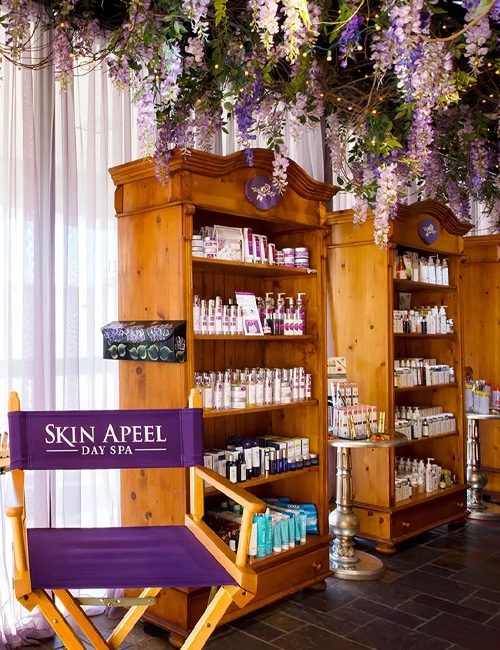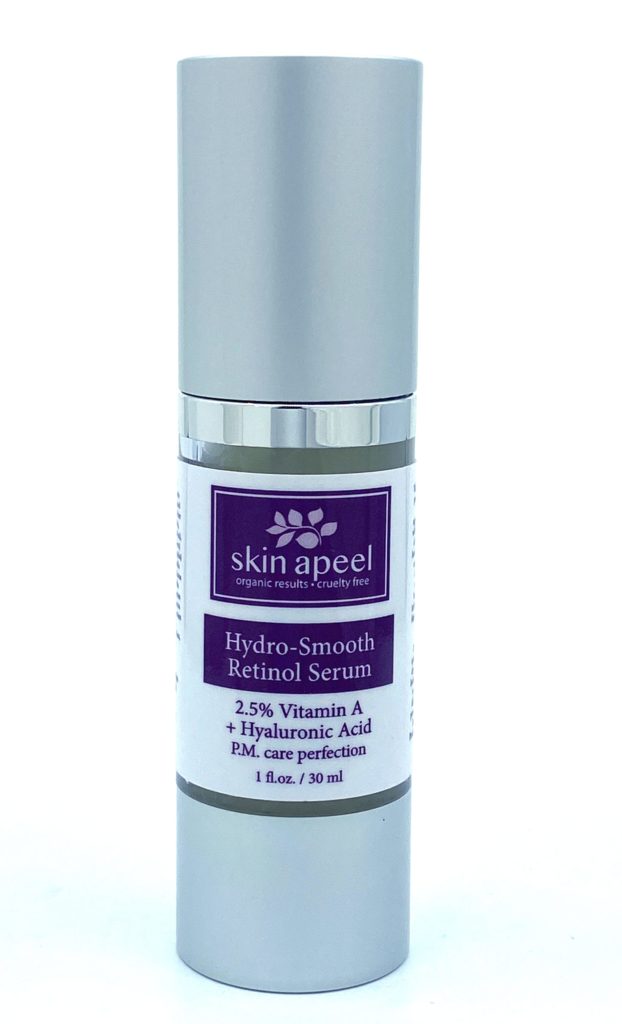Skin Apeel
-
21301 Powerline Road,
Suite 215 Boca Raton, FL 33433 - Phone: (561) 852-8081
- Email: [email protected]

If you actively seek ways to retain the plumpness and smoothness of your skin, you would have come across glycolic acid and retinol. Unlike sunscreens and vitamin supplements, glycolic acid and retinol are active ingredients that exfoliate and regenerate the skin.
Unfortunately, the use of the two anti-aging active ingredients is not straightforward. In fact, there has been an age-long debate about which one of the two is the best.
Some “experts” claim that glycolic acid is only for mature people with oily skin. Others say that its use is limited to exfoliation – that retinol is the only anti-aging ingredient.
With all the confusion, you might be worried about which to use. You might even be curious about what the ingredients do and if you have been using them correctly.
But don’t fret; we shall provide clarity to all the confusion about glycolic acid and retinol use in this article. In particular, we shall discuss:
Before we delve into the details of the article, let’s give you a little heads up. Many so-called skincare experts have never tested the theories they put out. That is why they confuse users about the use of glycolic acid and retinol.
We are not like them (the “experts”). At Skin Apeel, we practice what we preach. And we can tell you that the two active ingredients are, in fact, complementary.
Glycolic acid is a derivative of sugar cane. And like most Alpha Hydroxy Acids (AHA), it is an active ingredient used in several skincare products.
Whether you have oily or sensitive skin, glycolic acid takes a friendly approach to skincare. More importantly, it is safe for all age groups.
Glycolic acid is a chemical exfoliant. In other words, it removes the dead cells from the top layer of the skin. In the process, it leaves a clear and balanced tone on you.
Beyond the end result, the outstanding quality of glycolic acid is what makes you one of the best anti-aging active ingredients. This AHA gently dissolves the binding glue within the skin. That way, removing the dead cells is a painless process.
In the end, you’ll come out with rejuvenated skin. The best part: glycolic acid sets up the base for the effectiveness of your other skincare routine.
Furthermore, glycolic acid increases the production of collagen. That is why it is one of the best aids for aged people to regain their youthful skin.
Ordinarily, you will get limited doses of glycolic acid in your skincare products. So, you don’t have to worry about complications.
Regardless, you will only enjoy the benefits of glycolic acid when you use it accordingly. The following tips can help:
Like glycolic acid, retinol is also a derivative. This time not a fruit but from vitamin A.
Often, retinol is confused with retinoid. While the two are vitamin A derivatives, retinoid is more powerful and hardly used in skincare – if at all.
Furthermore, retinol is just as friendly to all skin types like glycolic acid. But they have a soft spot for mature-looking skins.

Compared to other anti-aging active ingredients, retinol offers unmatched benefits to the skin. Let’s start with the similarities with glycolic acid.
For starters, retinol also improves collagen production. It helps your skin to return to its youthful appearance. It’s more like doing a skin turnover!
Also, retinol helps with exfoliation. It loosens the skin binding compound to remove the dead cells.
Lastly, retinol takes another page from glycolic acid’s book by promoting a balanced tone. It ensures that discoloration (if at all) is evenly spread across the skin.
Outside the shared benefits with glycolic acid, retinol also controls oil production. In fact, it has a drying effect that can be perfect for people with oily skin.
Most importantly, retinol can help your skin reduce the wrinkles and lines associated with aging.
Unlike glycolic acid, you don’t have to worry about concentration level when using retinol. Even over-the-counter products with this active ingredient are safe to use for all age groups.
That said, use retinol in the following ways to see sustainable results:
Key takeaway: glycolic acid and retinol offer almost the same benefits. The only difference between the two active ingredients is that glycolic tends more towards exfoliation. On the other hand, retinol is more rounded toward overall skin health.
That said, we have good news for you. You don’t have to pick glycolic acid over retinol or otherwise. You can use the two active ingredients together to get the best anti-aging results.
Short answer: yes!
But there’s one condition: use glycolic and retinol together under supervision. Why?
Combining the two active ingredients is most effective for specific skin conditions (such as acne scarring). But your skin might have its threshold.
That’s why you should seek the help of a professional to make the decision. Fortunately, we have specialized care for glycolic acid and retinol: glycolic retinol facial.
Our glycolic retinol facial treatment is specifically geared toward older people. But you always make modifications to other skin types. Let us know your needs, and we’ll set up an in-house meeting!
Related article: Top 10 Treatments From The Best Nail Salon Spa In Boca Raton